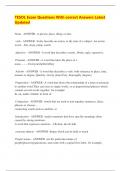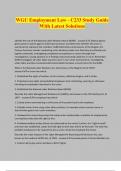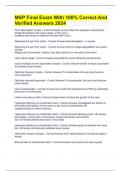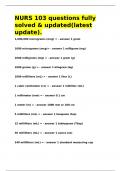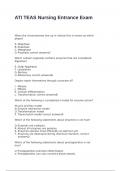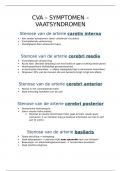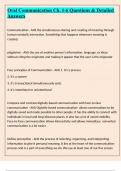Exam (elaborations)
TESOL Exam Questions With correct Answers Latest Updated
- Course
- Institution
TESOL Exam Questions With correct Answers Latest Updated Noun - ANSWER -A person, place, thing, or idea verb - ANSWER -Verbs describe an action, or the state of a subject..An action word.... Eat, sleep, jump, watch. adjective - ANSWER -A word that describes a noun...Pretty, ugly, expensive. ...
[Show more]
